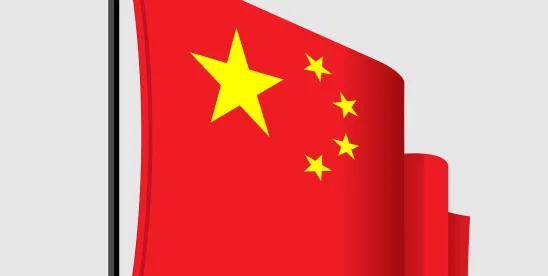Highlights
The Office of the U.S. Trade Representative (USTR) announced a comment period on proposed Section 301 tariff modifications for products from China subject to increased rates of duty and a new exclusion process
Interested parties may submit written comments by June 28, 2024
The USTR issued determinations to extend and end certain Section 301 product exclusions after June 14, 2024
Since 2018, many U.S. companies have been affected by the substantial import tariffs imposed on certain products from China, also known as Section 301 tariffs. On May 14, 2024, President Joe Biden directed the Office of the U.S. Trade Representative (USTR) to maintain the tariffs at current levels and to add or increase Section 301 tariffs for certain goods from China in strategic sectors. This direction was the result of the USTR’s four-year review of the Section 301 China tariffs.
The USTR also announced it will temporarily extend all expiring Section 301 product exclusions through June 14, 2024. However, after June 14, more than 100 exclusions will expire, and the remaining exclusions will be extended through May 31, 2025.
Section 301 Increased Tariff Modifications and Machinery Exclusion Process
At the president’s direction, the USTR is proposing the following increased tariff modifications on certain products in strategic sectors to take effect in 2024, 2025 and 2026:
| Product | Current Section 301 Rate | Proposed Increased Rate | Proposed Effective Date |
| Battery parts (non-lithium-ion batteries) | 7.5% | 25% | August 1, 2024 |
| Lithium-ion electrical vehicle batteries | 7.5% | 25% | August 1, 2024 |
| Other critical minerals | 0% | 25% | August 1, 2024 |
| Electric vehicles | 25% | 100% | August 1, 2024 |
| Ship to shore cranes | 0% | 50% | August 1, 2024 |
| Solar cells (whether or not assembled into modules) | 25% | 50% | August 1, 2024 |
| Steel and aluminum products | 0% to 7.5% | 25% | August 1, 2024 |
| Syringes and needles | 0% | 50% | August 1, 2024 |
| Facemasks | 7.5% | 25% | August 1, 2024 |
| Semiconductors | 25% | 50% | January 1, 2025 |
| Lithium-ion non-electrical vehicle batteries | 7.5% | 25% | January 1, 2026 |
| Natural graphite | 0% | 25% | January 1, 2026 |
| Permanent magnets | 0% | 25% | January 1, 2026 |
| Medical gloves | 7.5% | 25% | January 1, 2026 |
Additionally, the USTR is proposing a process for considering certain machinery used in domestic manufacturing and certain solar manufacturing equipment be excluded from the tariffs.
The USTR has asked for written comments on the proposed increased tariff modifications and exclusion process by June 28, 2024.
U.S. importers and purchasers of the Chinese products slated for increased tariffs and tariff exclusions, as well as domestic producers and other interested parties, may want to consider submitting comments before the June 28 deadline. Moreover, U.S. importers and purchasers may want to consider the impact of the proposed tariff increases on their costs and supply chain arrangements.
Extension and Expiration of Current Section 301 Product Exclusions
In March 2022, the USTR reinstated 352 previously expired product exclusions and, in May 2023, extended 77 COVID-19-related exclusions. The USTR requested comments on whether to extend these 429 exclusions past May 31, 2024.
On May 24, 2024, the USTR determined that more than 100 exclusions will expire and the remaining exclusions will be extended through May 31, 2025. The product exclusions that will expire include, for example, items such as certain pressure reducing valves and bicycles. To allow for a transition period, the USTR is extending all of the currently expiring exclusions through June 14, 2024.
Interested parties are encouraged to review the extended and expiring exclusions before the temporary extension ends on June 14, 2024.






 />i
/>i

